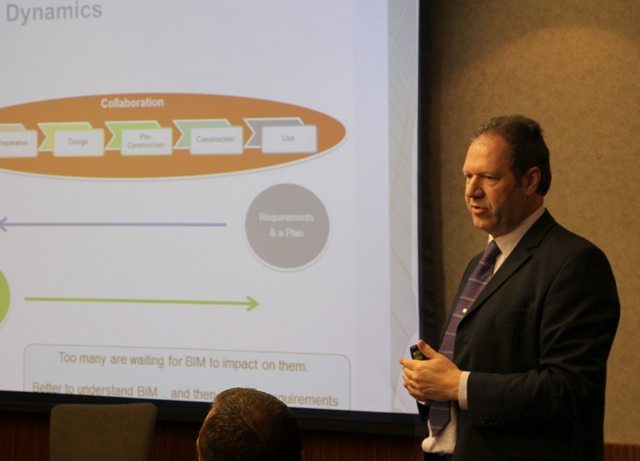Change GCC’s mentality towards BIM – experts
GCC governments more focused on the initial costs rather than benefits

RELATED ARTICLES: CAD-Q and BIMobject in cooperation agreement | Do more for BIM – experts | MEP catching up with BIM usage
One of the biggest challenges facing BIM in the GCC is that governments are still focused on the initial start up costs rather than the process and benefits it could bring, a panel of experts have said.
Speaking during a Big Project ME roundtable discussion, Khalid Shuhail, Council Board Member and Chairman of the Arbitration Committee for the Society of Engineers – UAE, said that governments still looked at BIM as a new idea, but that mentality needed to change.
“In the government way of handling things, BIM is a new idea, but the general feeling is that it is a positive thing. Often governments assess something based on how much it will cost, they don’t take it as a process. The challenge we’re now tackling is how to get ahead of that mentality,” he explained.
Tim Cole, the executive vice president of Strategy at Causeway, added that governments around the world were starting to mandate BIM and said that countries needed to take those initial steps for BIM to be successful. However, he said that it wasn’t necessary to assume that the region was that far behind the rest of the world.
“Wherever you are there is that sense of being prepared to take those initial steps and it’s not a case of people thinking that around the world they have got this cracked, because that isn’t the case,” he said.
“In America, for example, until recently it was federal law for a contractor to talk to an architect and it was clearly a collusion of some description, so there are some obvious barriers to be overcome, but the key part is not to perceive the rest of the world as being in some utopian state with BIM.”
“Wherever you go, you’ll find differences. There are some places where it is starting to happen and be integrated, but in most cases, if you take some early practical steps, you will find yourself gaining the benefits and getting ahead,” he explained.
Tahir Sharif, president of buildingSMART, added that the high cost of projects was also influencing governments to adopt BIM. With the likes of Jordan, USA and Singapore starting to mandate BIM, he believed that governments were doing so because it was taxpayers’ money going into the development of these projects.
“I do think that governments will follow these steps because it is tax payers’ money going into these projects. Maybe less so here, but when working with ADAC on the Midfield Terminal Complex, BIM was initially used from an operations perspective, but when it came to the discussion of savings they potentially could make in terms of maintaining the project. It became one of the main drivers,” he said.
Tim Cole, Tahir Sharif and Khalid Shuhail were speaking at a round-table hosted by Causeway Middle East.

























